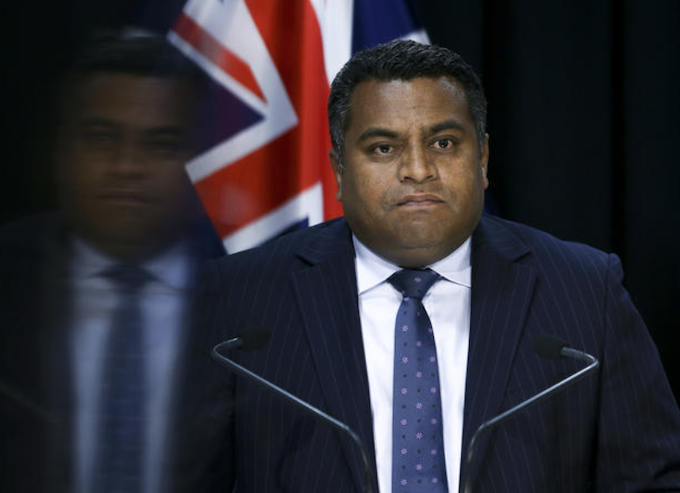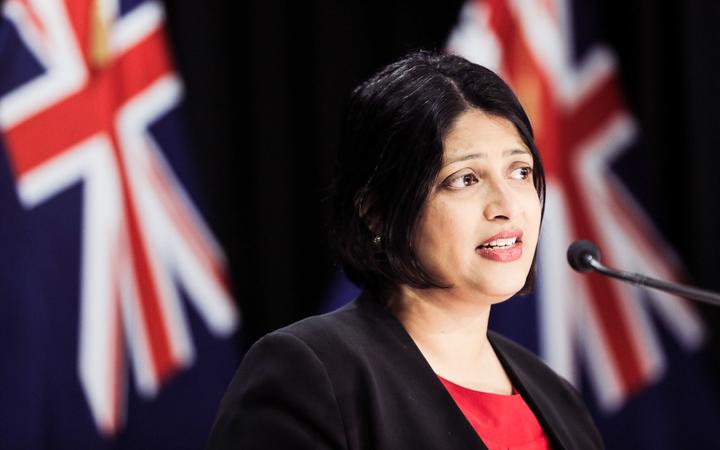
By Katie Scotcher, RNZ News political reporter
Hate speech will become a criminal offence in New Zealand and anyone convicted could face harsher punishment under proposed legislative changes.
The government has today released for public consultation its long-awaited plan for the laws governing hate speech.
The plan is part of the government’s work to strengthen social cohesion, in response to the Royal Commission of inquiry into the Christchurch mosque terror attack.
Justice Minister Kris Faafoi said yesterday that abusive or threatening speech that incites can divide communities.
“Building social cohesion, inclusion and valuing diversity can also be a powerful means of countering the actions of those who seek to spread or entrench discrimination and hatred,” he said.
Protecting free speech and protecting people from hate speech would require careful consideration and a wide range of input, Faafoi said.
Punishment may increase
The government is considering creating a new, clearer hate speech offence in the Crimes Act, removing it from the Human Rights Act.
That would mean anyone who “intentionally stirs up, maintains or normalises hatred against a protected group” by being “threatening, abusive or insulting, including by inciting violence” would break the law.
The punishment for hate speech offences could also increase — from up to three months’ imprisonment or a fine of up to $7000, to up to three years’ imprisonment or a fine of up to $50,000.
The groups protected from hate speech could also grow – the government is considering changing the language and widening the incitement provisions in the Human Rights Act.
It has not yet decided which groups will be added. That is expected to happen following public consultation.
It is currently only an offence to use speech that will “excite hostility” or “bring into contempt” a person or group on the grounds of their colour, race or ethnicity. Gender identity, sexual orientation, religion or disability are not protected grounds.
The government is proposing several changes to the civil provision of the Human Rights Act, including making it illegal to incite others to discriminate against a protected group.
Protection from discrimination
It also wants to amend the Human Rights Act to ensure trans, gender-diverse and intersex people are protected from discrimination.
The proposed changes were recommended by the Royal Commission of Inquiry into the Christchurch terror attack on 15 March 2019, which found hate crime and hate speech were not adequately dealt with.
“The current laws do not appropriately recognise the culpability of hate-motivated offending, nor do they provide a workable mechanism to deal with hate speech.”
The Ministry of Social Development will simultaneously consult with the public about what can be done to make New Zealand more socially cohesive.
Associate Minister for Social Development and Employment Priyanca Radhakrishnan, who is leading the social cohesion programme, told a media conference today the government wanted to build from existing Māori-Crown values.

“We are not starting from scratch,” she said. “We are generally regarded as a country with a high level of social cohesion and we’ve seen that as our team of 5 million has largely come together to rally around both in the aftermath of March 15 and also during the covid-19 lockdown.”
However, she said there were underlying vulnerabilities that New Zealand needed to address as the country grew in diversity and that this effort would be grounded in the values of the Treaty of Waitangi and the Māori-Crown relationship.
Ethnic programme
She said the government had accepted in principle all 44 recommendations of the Royal Commission of Inquiry into the Christchurch mosque attacks and had made progress on implementing those. Subsequent hui with ethnic groups had fed into the government’s response, she added.
“We’ve set up an ethnic communities graduate programme to provide a pathway into the public service for skilled graduates from ethic communities and also as one way to inject that broader cultural competence into government agencies, including the intelligence agencies.
“And the new Ministry for Ethnic Communities will come into effect next week and will take the place of the Office for Ethnic Communities.”
Radhakrishnan said the programme had a broader reach than ethnicity and that others who feel marginalised were being included.
She said the government wanted input from the public on how the programme can be forwarded.
Public submissions open today and close on August 6. The government’s discussion document includes steps on how to submissions.
This article is republished under a community partnership agreement with RNZ.













































